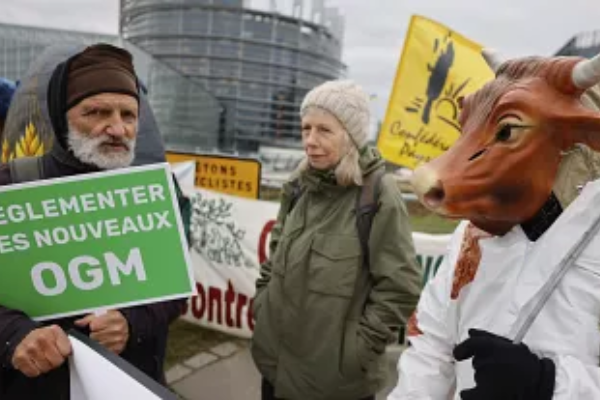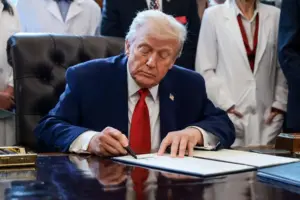Hungary’s agricultural minister, István Nagy, has accepted a petition from hundreds of food producers and retailers calling for strong labelling regulations for next-generation genetically modified (GM) crops, boosting Budapest’s stance on a proposed deregulation that has divided EU states.
Negotiations on a proposed New Genomic Techniques (NGT) regulation have stalled after Hungary reignited a debate over whether crops whose genomes were ‘edited’ using cutting-edge laboratory procedures should be treated as broadly equivalent to conventionally bred crops, including the question of whether food should be clearly labelled.
Five days before agriculture ministers are scheduled to meet in Budapest for an informal EU Council summit, Nagy accepted an open letter signed by 376 companies, including Spar Austria, REWE, Germany’s second-largest supermarket chain, Biocoop, a French organic food retailer, and DM, a health food and cosmetics chain.
Calling for “freedom of choice through transparency”, the letter urges ministers to align with the position of the European Parliament, which has agreed that all products containing NGT plants should be clearly labelled.
“Customers want to be free to choose whether or not they want this technology on their plates,” said Götz E. Rehn, founder of the German wholefoods chain Alnatura. “This requires clear rules on coexistence in agriculture, complete transparency and a declaration on all products.”
Heinz Kaiser, head of production at dairy concern Schwarzwaldmilch, said a lack of labelling posed existential threat to the organic food sector as it would prevent customers from differentiating between conventional and GM foods. “We need compulsory national and regionally adapted coexistence measures to ensure fair competition,” he said.
Read Also
For Biocoop vice-president, Fréderic Faure, modern gene-edited crops shared numerous drawbacks of conventional GMOs, which he listed as “patentability, additional dependence of farmers on the seed and pesticide industry, outcrossing into the environment and the resulting negative impact on biodiversity”.
Hungarian presidency seeks to reignite debate on GMO deregulation
Several governments share such concerns, made clear last week when the EU Council published statements from 15 member states in response to Hungary’s reopening of the NGT debate.
Spain – the only EU member state with a significant level of cultivation of GM crops – said a February compromise text drafted by the the previous Belgian presidency of the EU Council, which does not require labelling of NGT food products, should remain the basis for further talks to “avoid a repetition of previous debates”.
Czechia and Denmark – which said the failed Belgian compromise “represents a robust and equitable resolution” – also resisted the idea of reopening the debate essentially from scratch. Likewise, Finland said it could accept the criteria on the equivalence of new generation GM crops with traditional strains.
On the other side of the fence were countries, including Austria and Greece, that opposed the Belgian formula, and agreed that all GM products should be subject to mandatory labelling from farm to fork.
Hungary, although technically filling the role of honest broker during its six-month Council presidency, is clearly in the latter camp – perhaps no surprise given the cultivation of genetically modified crops is banned under the constitution drafted by the incumbent Orbán government.





